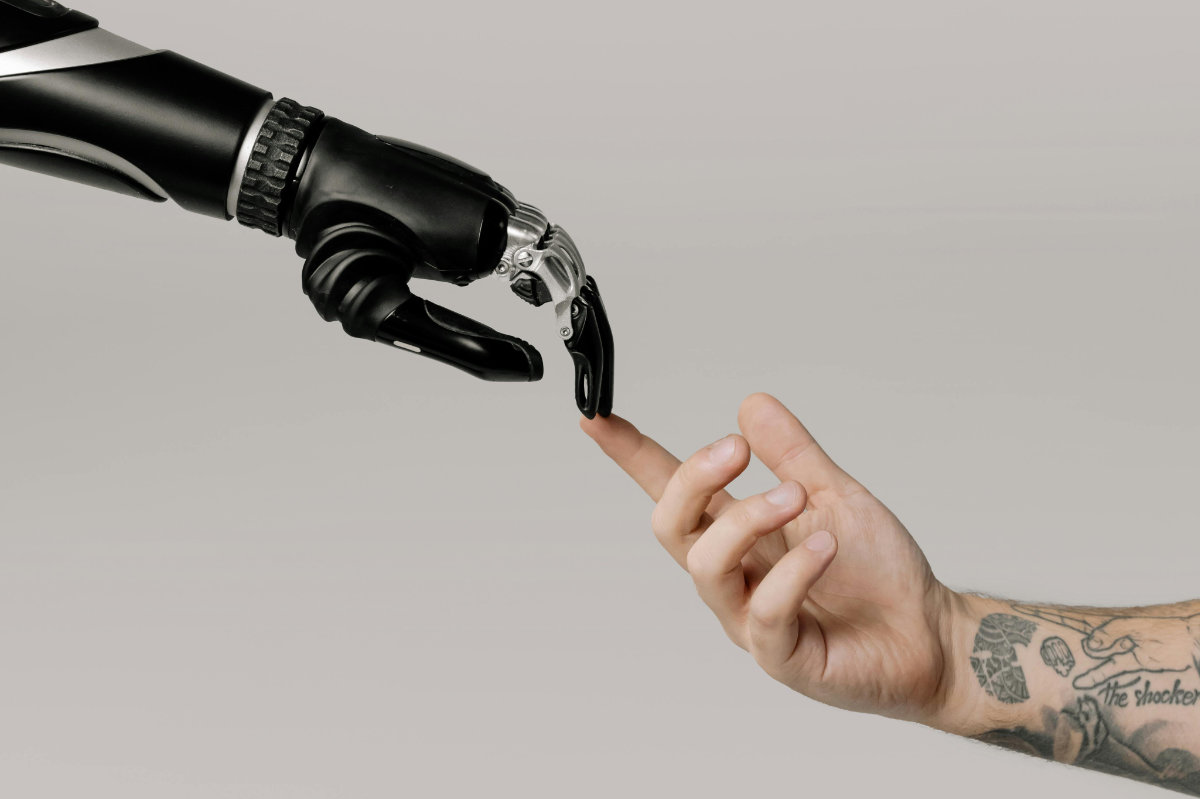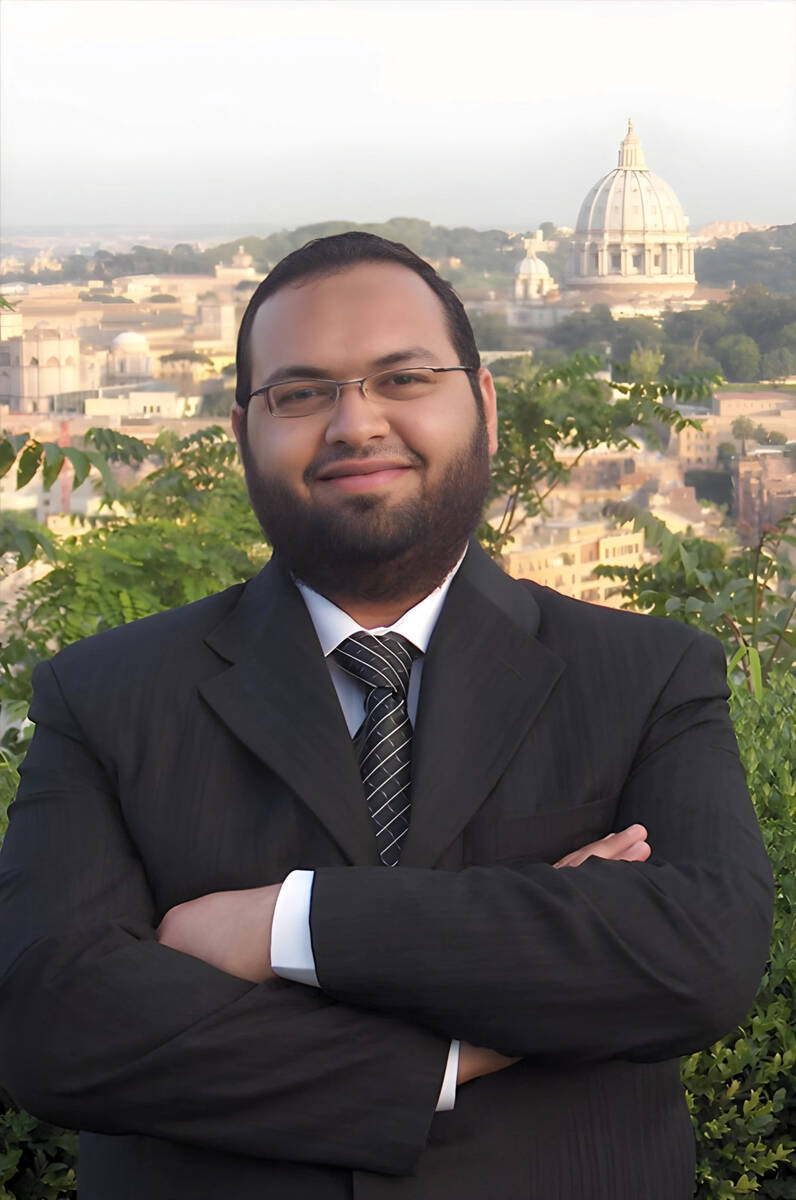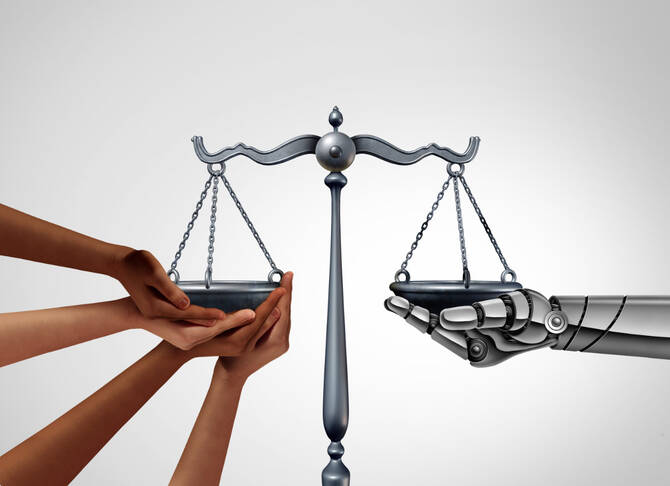RIYADH: As artificial intelligence seeps deeper into everyday life — from smart assistants and facial recognition to online shopping and AI-generated selfies — so too do the threats to personal data and privacy.
The dazzling capabilities of AI come at a cost many users do not fully grasp: exposure to data collection, surveillance, and potential misuse. And in a world where convenience often trumps caution, experts are urging users and organizations alike to slow down and scrutinize the digital tools they engage with.
“AI systems often depend on vast amounts of data, including sensitive personal information, which raises significant privacy issues,” Osama El-Masry, who leads data protection and privacy practice delivery for the Middle East region at the IT consulting firm Cognizant, told Arab News.
“Many users are unaware of how their data is collected, stored, and utilized, leading to fears of unauthorized access or misuse. For example, technologies like facial recognition can infringe on individual privacy without consent, posing risks of surveillance and tracking.”

This warning comes amid growing concerns about how AI software processes user data — especially in apps and platforms that seem harmless at first glance.
While regulation and ethical oversight are often viewed as a government or corporate responsibility, El-Masry stresses that users must also play an active role.
“This means reading privacy policies and being aware of what personal information is collected and how it may be used or shared,” he said.
“A critical aspect of this responsibility is limiting the sharing of personal data when using AI tools. Users should strive to provide only the minimum necessary information required to achieve their desired outcomes, avoiding unnecessary disclosure of sensitive data.”
In short, treat AI tools like you would any new technology: with a mix of curiosity and caution. The onus is on users to learn how their data is handled and to be wary of oversharing. On the flip side, organizations must prioritize privacy from the very beginning of product design.
“This involves implementing strong data protection measures, ensuring transparency and explainability in data usage, and adhering to AI and privacy regulations/principles,” El-Masry said. “Organizations should also clearly communicate their data practices to users, fostering an environment of trust.
Opinion
This section contains relevant reference points, placed in (Opinion field)
“Ultimately, a collaborative approach, where both parties understand their roles and responsibilities regarding privacy, is essential for protecting personal information in the age of AI.
“By working together, users and organizations can create a more secure digital landscape that respects privacy rights.”
Take the current obsession with AI art filters, for instance. Millions of users upload their photos to apps that transform them into anime characters or classic oil paintings. But what happens to those original images?
“Many users may not realize that while the effect is fun, their original images are still being processed and may be retained by the app,” said El-Masry.
“This underscores the importance of being mindful about which platforms and applications are trusted with personal images and data. By taking these steps, users can harness AI’s potential while safeguarding their personal information against misuse.”
It’s a simple but powerful reminder: Just because something looks like harmless fun, doesn’t mean it’s risk-free. Every interaction with AI — no matter how trivial it seems — carries data implications.

As AI becomes more sophisticated and integrated into business, healthcare, finance, education, and government systems, the implications for misuse — whether accidental or malicious — become more severe. (Pexels illustration image)
Users are also advised to challenge the information they receive from AI platforms. While many tools promise personalization and convenience, they can just as easily perpetuate bias or inaccuracies.
“Continuous education about AI ethics and privacy implications empowers users to make informed choices about their interactions with these technologies,” said El-Masry. “Users should also advocate for ethical data practices within their communities, promoting accountability among developers and organizations.
“It’s important to recognize that AI applications vary widely, with some being non-privacy-related, such as telecom network enhancements and medical diagnostics, and others being privacy-sensitive, like marketing profiling and predictive analysis.
“Users should be particularly cautious when interacting with AI technologies in privacy-sensitive fields, as these applications often involve the handling of personal data that can impact privacy rights.”
There are ways to navigate the AI landscape safely. One approach is to seek out AI tools that prioritize user privacy through transparent practices and robust protection measures.
“By taking these steps, users can harness AI’s potential while safeguarding their personal information against misuse,” said El-Masry.
The stakes are higher than many realize. As AI becomes more sophisticated and integrated into business, healthcare, finance, education, and government systems, the implications for misuse — whether accidental or malicious — become more severe.
El-Masry lists several privacy threats tied to AI applications, including “unintended biased decisions, unethical AI use cases, data leaks, decisions ambiguity, and the use of AI with vulnerable data subjects.
“This is becoming a global concern and the driver for the issuance of the different ethical AI regulations/principles by many policymakers across different regions and countries to mitigate the above risks associated with the use of AI.

Osama El-Masry. (Supplied)
While much of the world is still struggling to keep pace with innovation, Saudi Arabia has moved to regulate and promote the ethical use of data and AI.
“The Kingdom introduced the Personal Data Protection Law, which establishes clear guidelines for data collection, processing, and sharing, ensuring that individuals’ privacy rights are protected,” said El-Masry.
“This framework aligns with international standards, signaling a commitment to responsible data management.”
The country’s National Strategy for Data and Artificial Intelligence is another critical piece of its governance efforts. It aims to build a culture of innovation without compromising ethical boundaries.
“Notably, SDAIA has issued a set of ethical AI principles that emphasize fairness, accountability, transparency, and privacy,” said El-Masry. “These principles guide the development and deployment of AI technologies, ensuring they are used responsibly and ethically.”
Despite Saudi Arabia’s leadership, data privacy in the broader Middle East remains patchy. Many countries still lack comprehensive legal frameworks to protect users’ rights.
El-Masry believes that’s an area ripe for action. “Governments should establish comprehensive AI and data privacy laws and regulations that align with international standards, providing clear guidelines for data processing.”
DID YOU KNOW?
• Saudi Arabia has introduced the Personal Data Protection Law to safeguard user privacy and regulate data use responsibly.
• The Kingdom’s National Strategy for Data and AI promotes innovation while ensuring ethical, transparent, and accountable AI practices.
• SDAIA’s ethical AI principles emphasize fairness, privacy, and governance, guiding responsible development and deployment of AI technologies.
He also advocates for coordinated public-private collaboration to raise the bar for compliance and innovation across the region.
“Organizations must prioritize compliance and even go beyond compliance and acknowledge the value of investing in implementing data responsibility practices and technologies that ensure robust privacy compliance and AI governance in conducting business, which has a direct impact on their revenues and sustainability. There are clear examples of private organizations who adopted this approach and (have) proven to be competitive and successful.
“Organizations should communicate their data practices clearly to build public trust. Additionally, mandating that organizations document AI use cases involving personal data and ensuring periodic reviews of AI algorithms can help maintain compliance with privacy regulations.
“Governments can support this by providing resources, consultation, and training to enhance organizations’ privacy and AI governance capabilities.”
While legislation and corporate responsibility are critical, El-Masry says individuals must also be empowered to take charge of their own digital lives. He calls for greater awareness and education around data privacy.
“By adopting a proactive and unified approach, both organizations and governments can create a safer digital environment that prioritizes privacy for all,” he said.
As AI becomes increasingly entangled in the infrastructure of modern life, protecting privacy is no longer a niche concern — it’s a collective responsibility. From the laws that govern AI to the choices we make about which apps to trust, the future of digital safety depends on everyone playing their part.
As El-Masry puts it: “By working together, users and organizations can create a more secure digital landscape that respects privacy rights.”
















